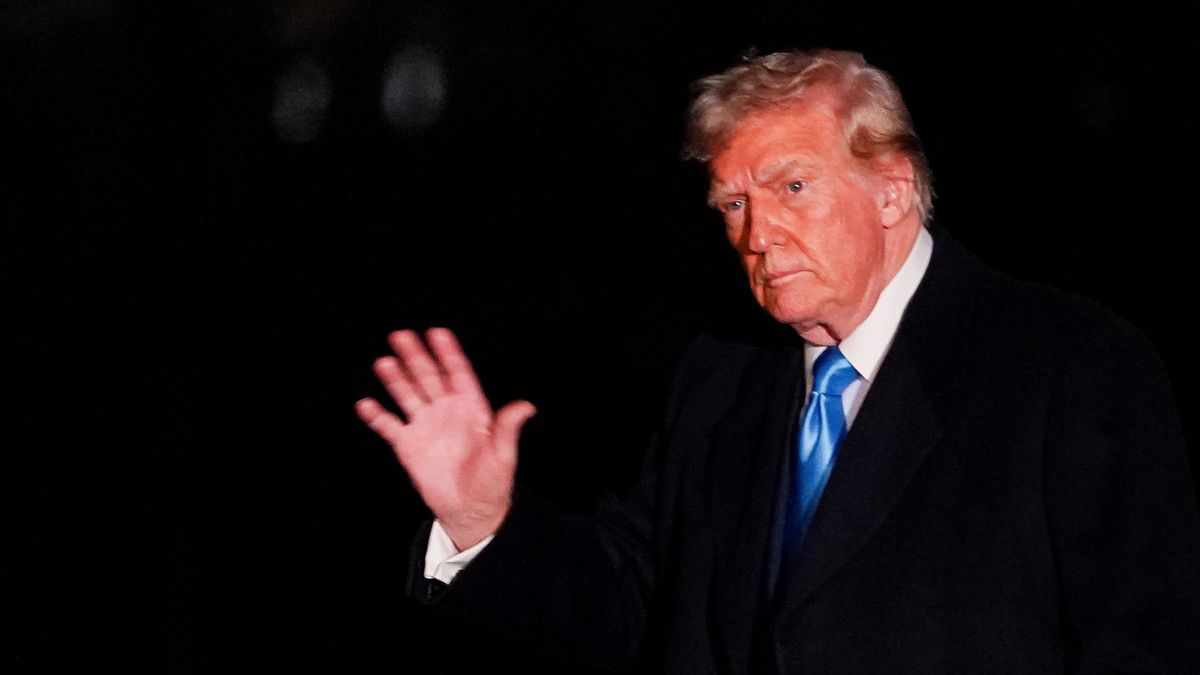Continuing his criticism of Brics, US President Donald Trump on Thursday announced the death of the group.
For months, Trump has been threatening Brics members with 100 per cent tariffs over concern regarding ‘dedollarisation’, referring to the purported efforts to dislodge US Dollar as the primary currency of international trade.
Trump’s remarks came hours ahead of a meeting with Prime Minister Narendra Modi of India, one of the founding members of Brics. On the same day, Trump also announced he will impose reciprocal tariffs on all countries , meaning that whatever tariffs other countries impose on US goods, the United States will match them.
“Brics was put there for a bad purpose…I told them if they want to play games with the Dollar, then they are going to be hit by a 100 per cent tariff. The day they mention that they want to do it, they will come back and say - we beg you, we beg you. Brics is dead since I mentioned that,” said Trump.
#WATCH | "...BRICS is dead..." says US President Donald Trump
— ANI (@ANI) February 13, 2025
US President Donald Trump says, "BRICS was put there for a bad purpose... I told them if they want to play games with the Dollar, then they are going to be hit by a 100% tariff. The day they mention that they want to… pic.twitter.com/sgI88oktqD
Even though India has repeatedly ruled out any plans for ‘dedollarisation’ or to introduce a ‘Brics currency’, the group is nonetheless important for India. While the group began with Brazil, Russia, India, China, and South Africa, it has expanded in recent years to include Egypt, Iran, the United Arab Emirates (UAE), and Ethiopia. Saudi Arabia is also in the process of joining the group but has not yet made the final decision.
Why Brics matters to India?
Brics is primarily an economic group that promotes economic cooperation among non-Western, developing countries.
Even thoush some leaders and commentators in the West see Brics as a Russia- and China-controlled anti-Western group, that is not the case as India is not just a founding member of the group but a major voice in its decision-making. Along with India, new members Egypt and UAE have longstanding relationships with the Uniteed States. Instead of being ‘anti-Western’ group, Brics is a ’non-Western’ group to secure the economic interests of non-Western countries.
Brics is also part of India's efforts to reform the international world order that has been overwhelmingly tilted to the West in the post-World War II world. As India pitches itself as the leader of ‘Global South’, Brics is one of the platforms to achieve that.
Moreover, Brics serves as an economic gateway to India. Every Brics member allows India a gateway to a wider geography for trade: Iran opens up Central Asia, Egypt opens up northern Africa, and Ethiopia opens up eastern and central Africa.
Along with G20, SCO, BIMSTEC, and others, Brics is part of India’s multilateral engagement that is now more important than ever to secure national interests. Unlike previous US President Joe Biden, Trump is not a champion of multilateralism or even partnerships for that matter. He believes in direct dealings and has no issues in leaving partners in a lurch. This means that Brics and other multilateral institutions are more important than ever for India to secure national interests and also to use as a leverage in negotiations with the United States and West.
India rejects ‘dedollarisation’
It is understood that India is the reason why Trump has not imposed tariffs on Brics members.
Trump’s main stated reason to threaten tariffs is the purported ‘dedollarisation’ bid. India has repeatedly rejected any such plan and has also rejected the idea that the group would come up with a Brics currency.
In October 2024, Minister of External Affairs S Jaishankar said that India had never actively targeted the dollar and dedollarisation was not part of its economic, political or strategic policy, according to PTI.
When asked at a think tank’s event about dedollarisation, Jaishankar said, “We have never actively targeted the dollar. That’s not part of either our economic policy or our political or strategic policy. Some others may have.”


)

)
)
)
)
)
)
)
)



